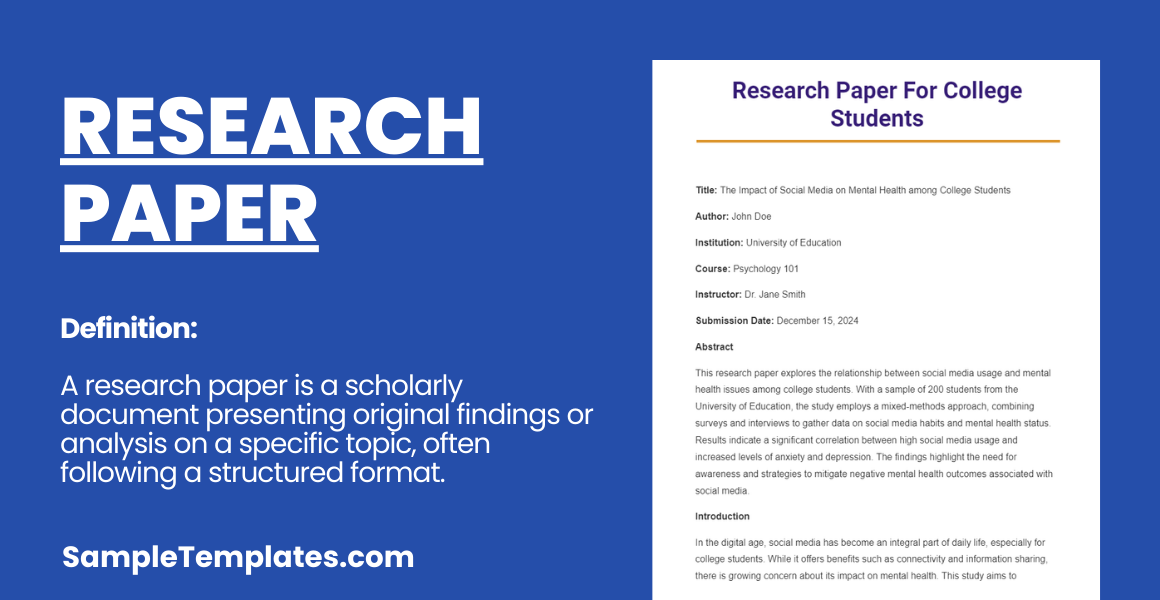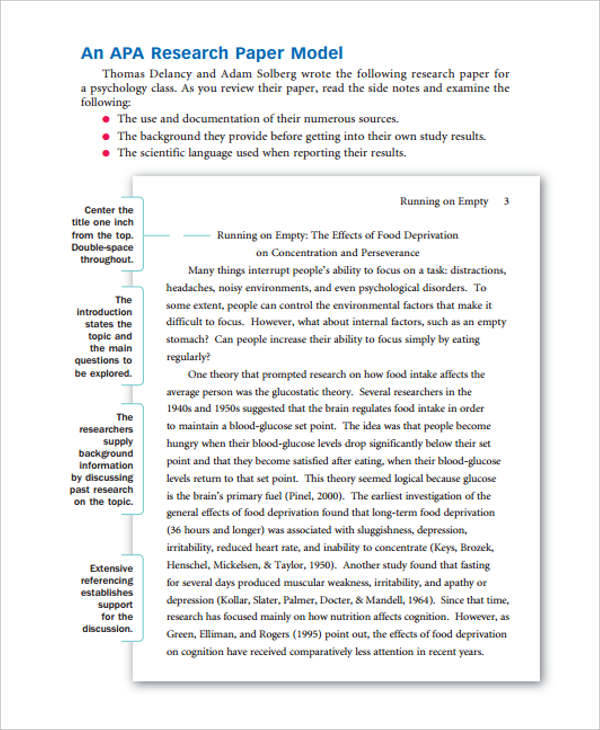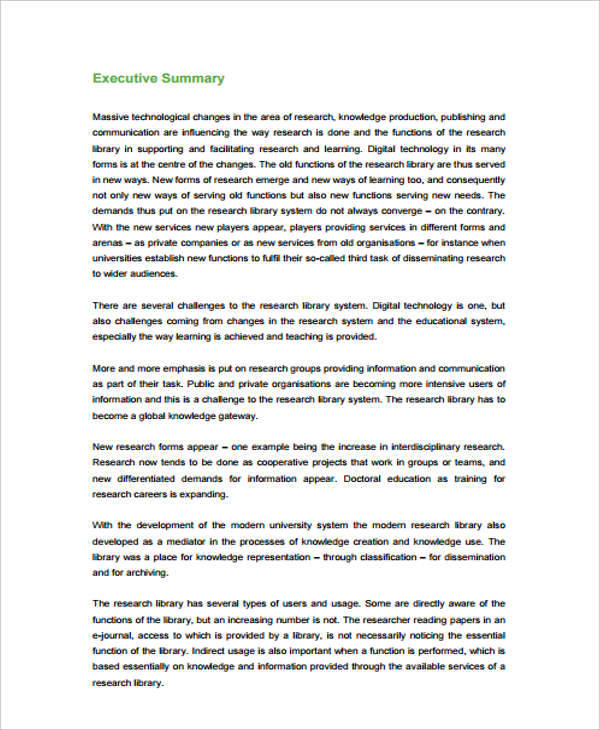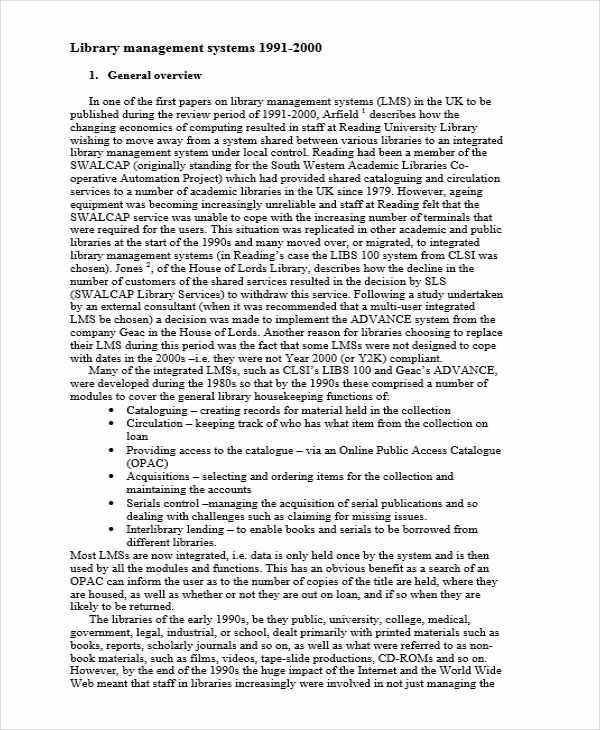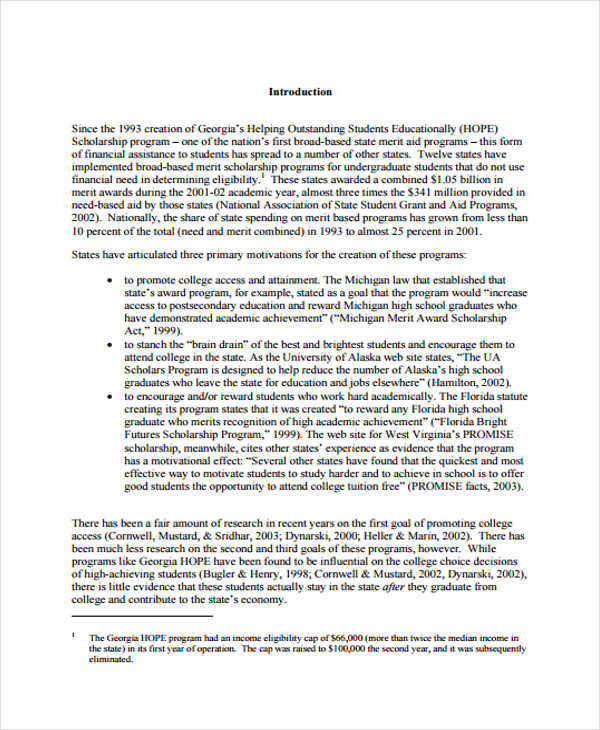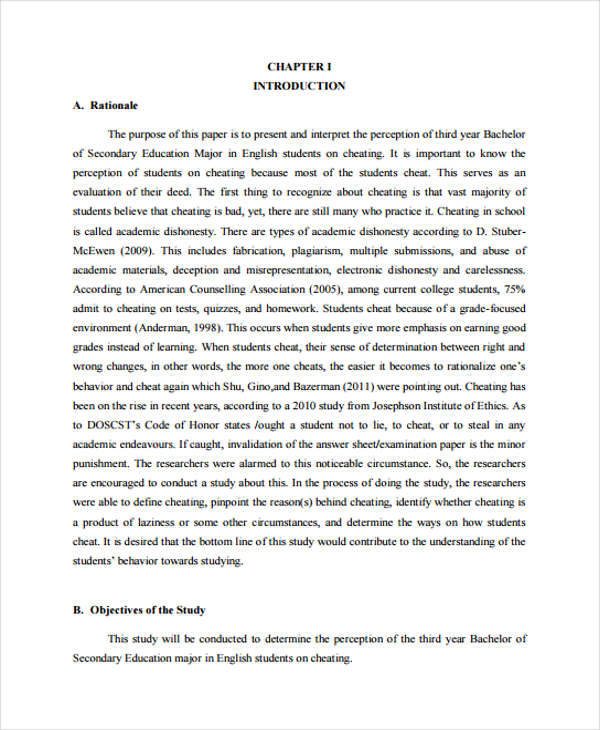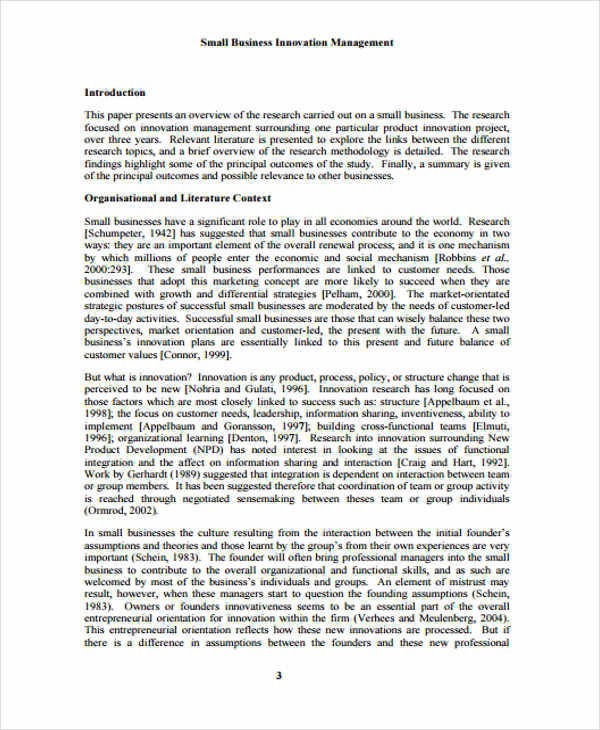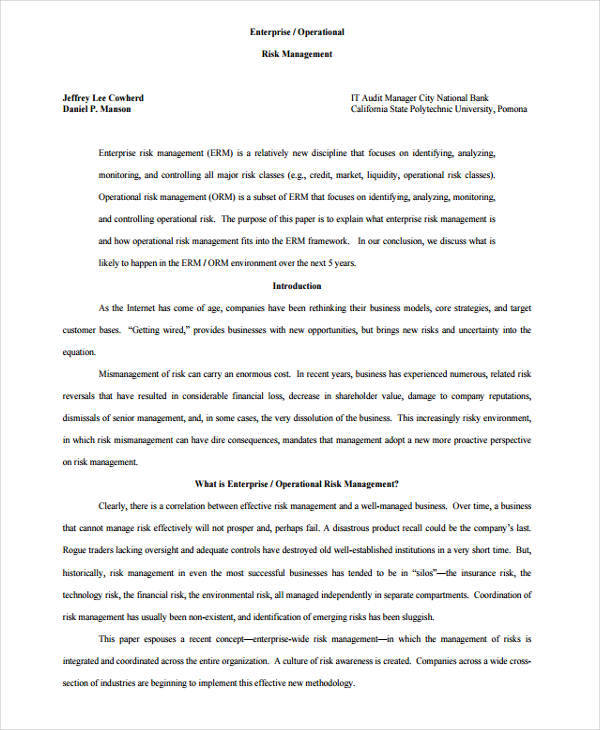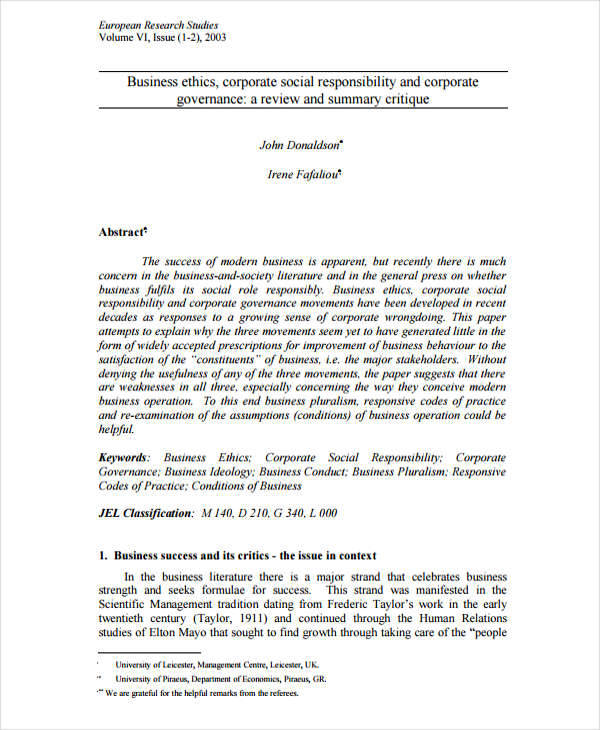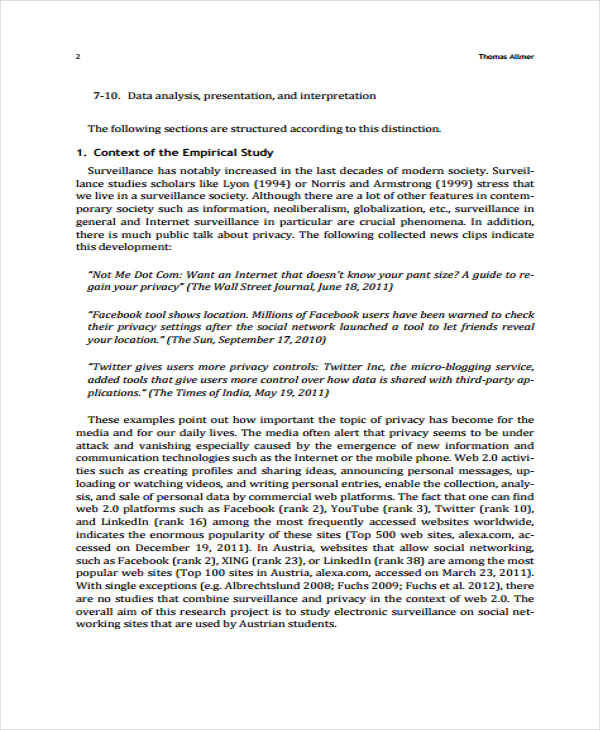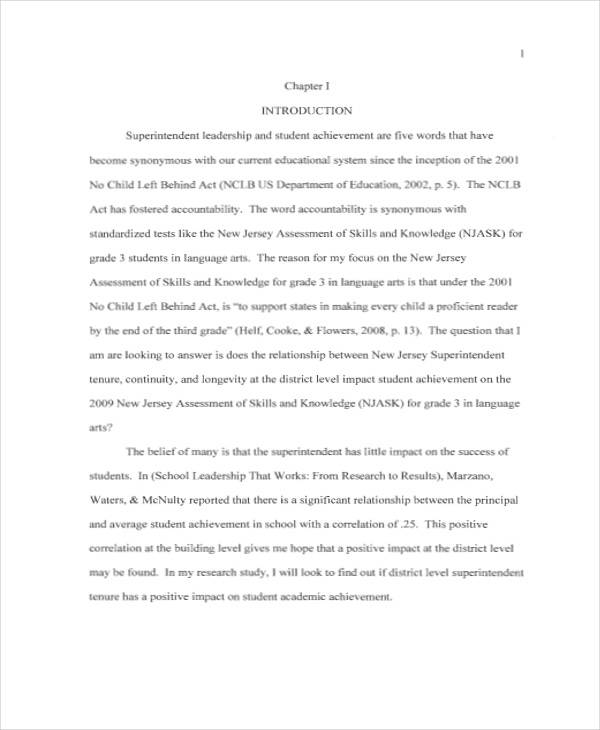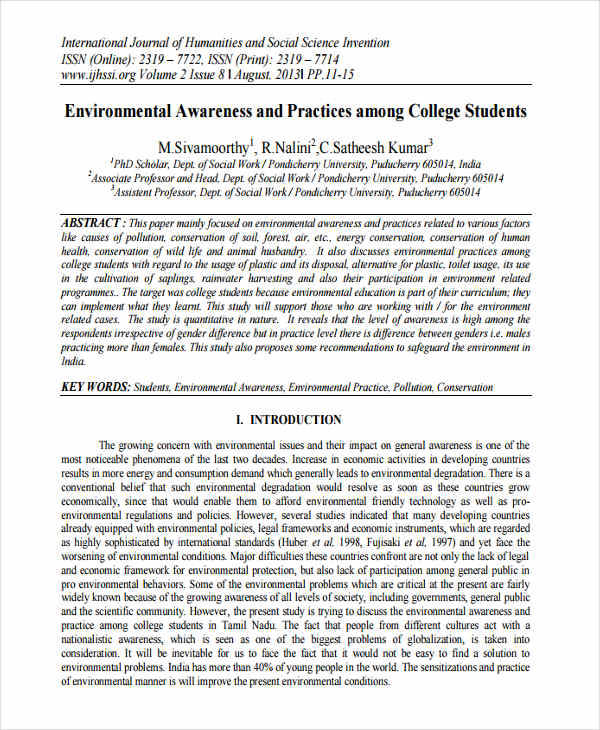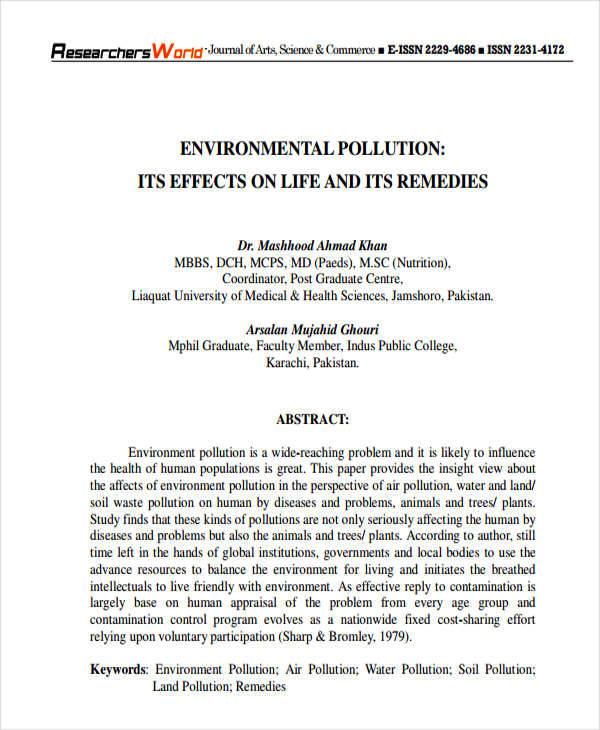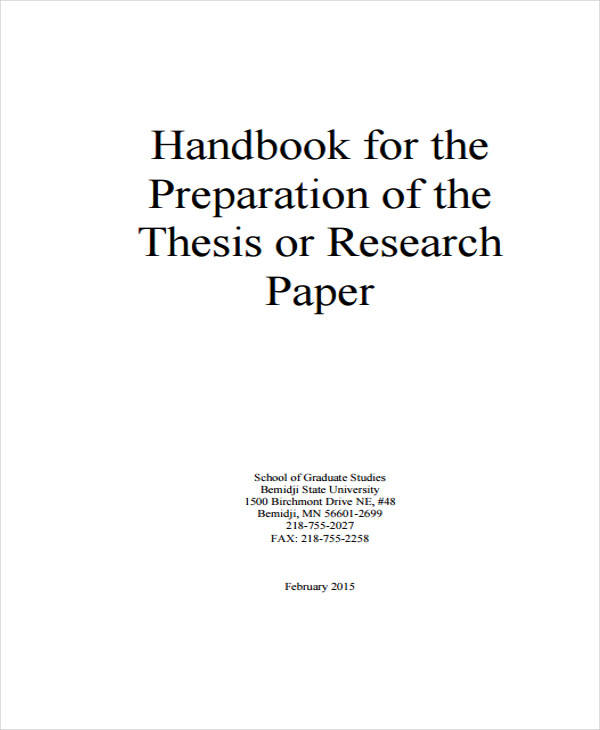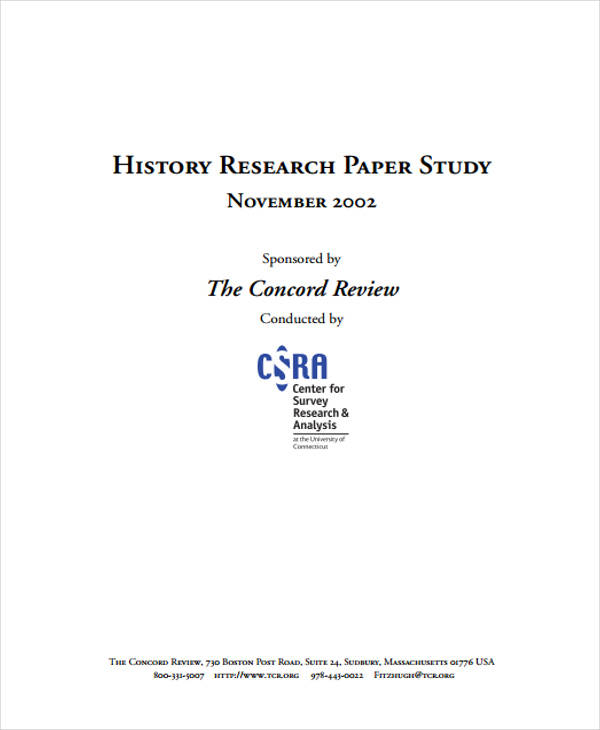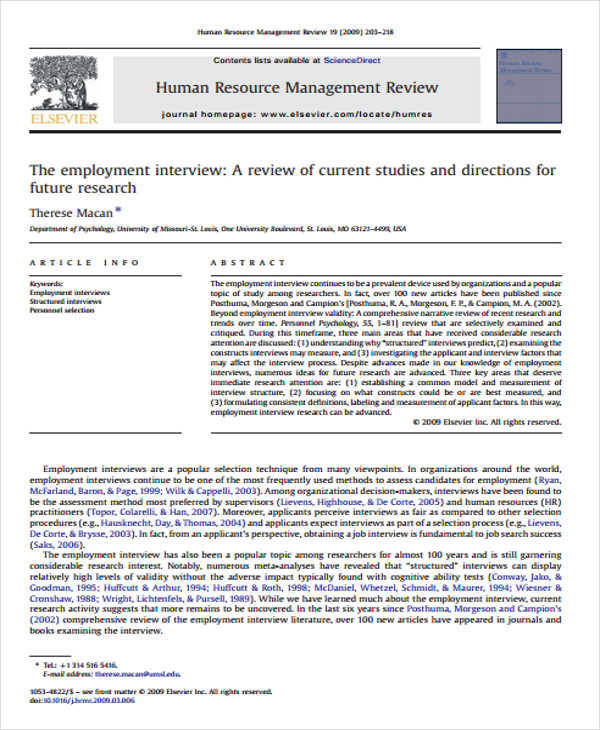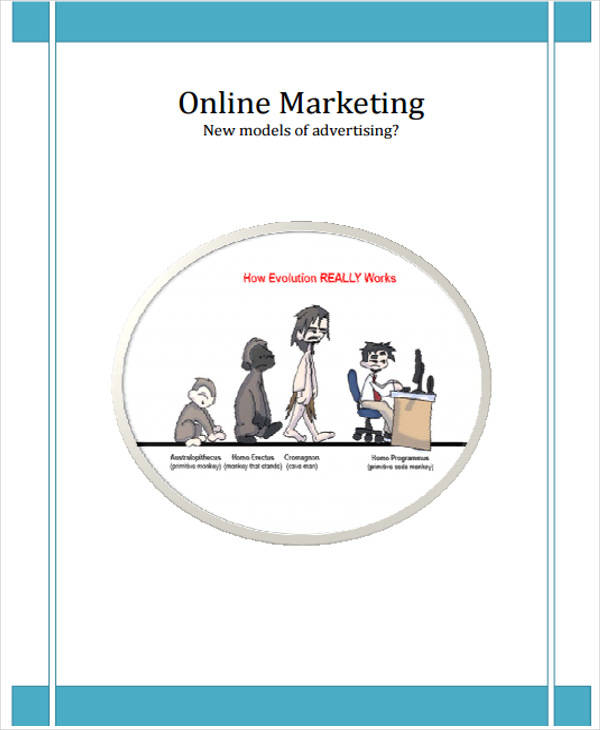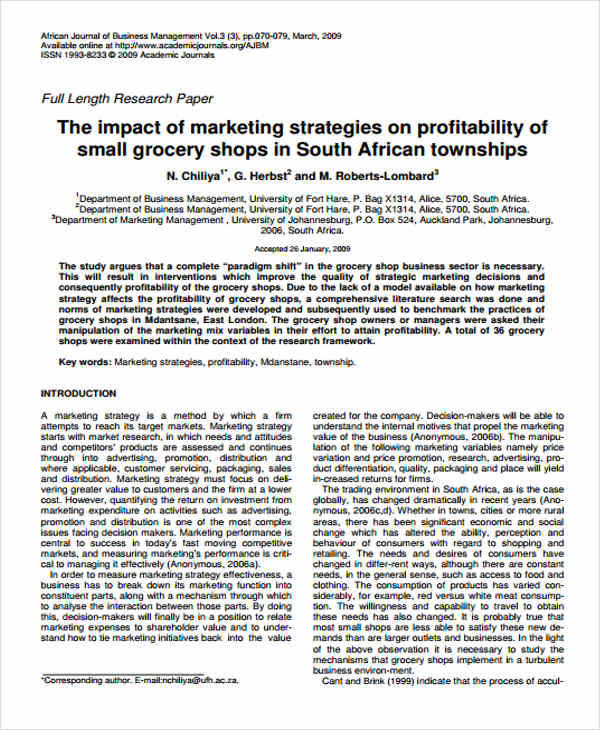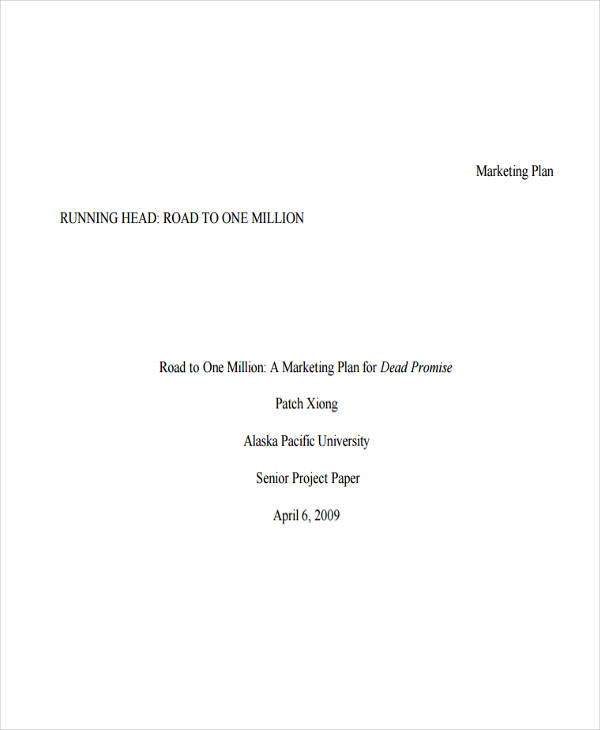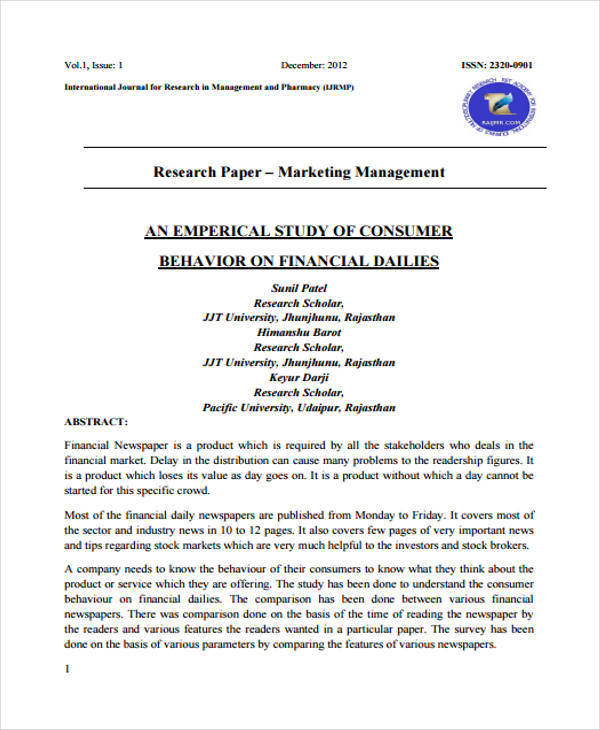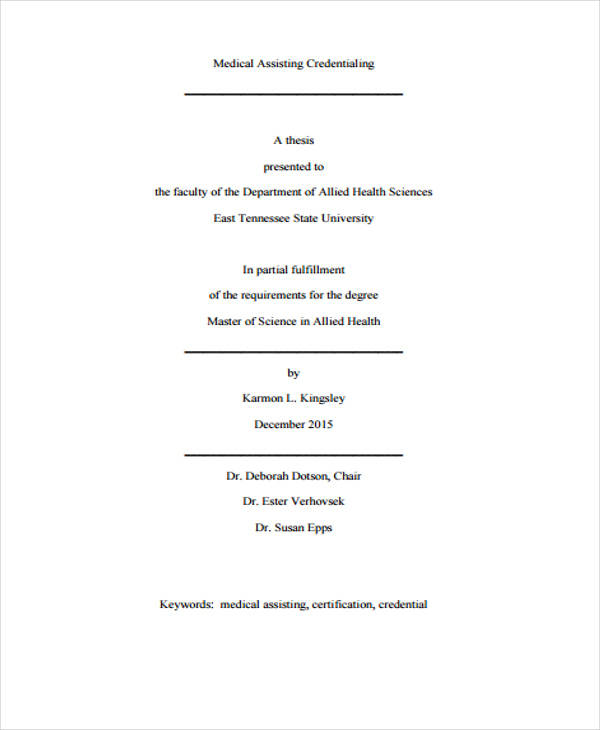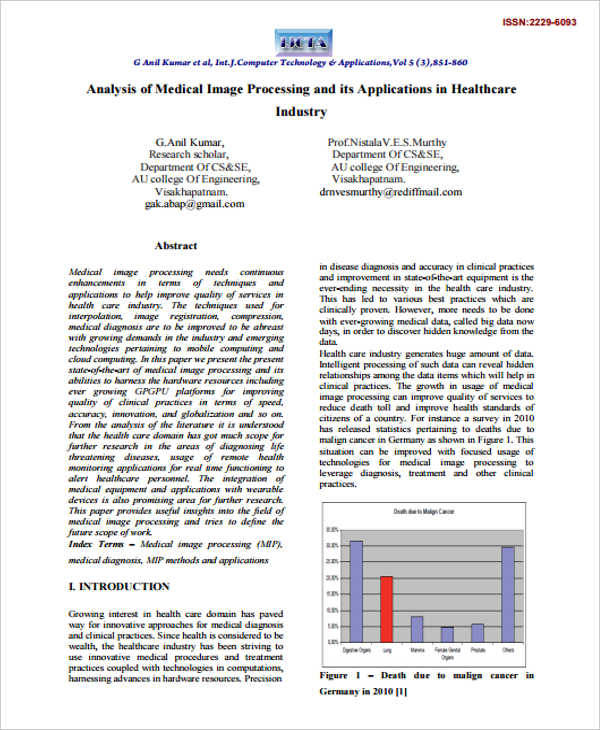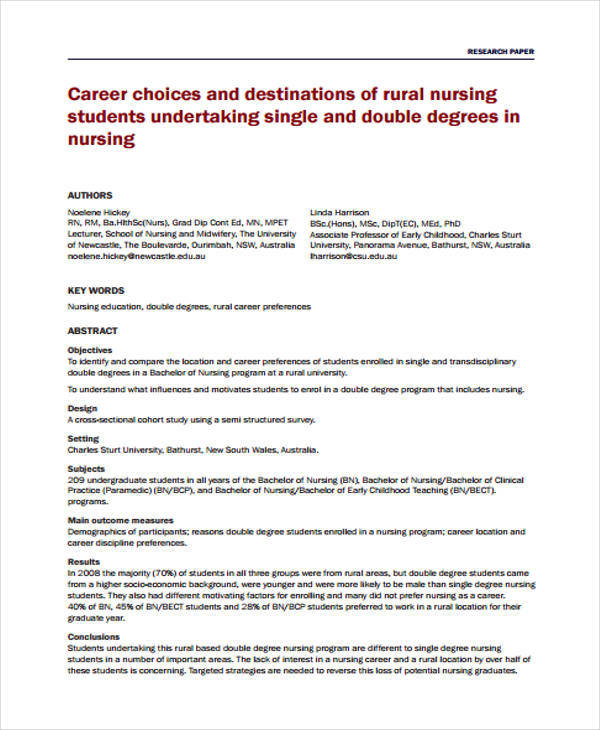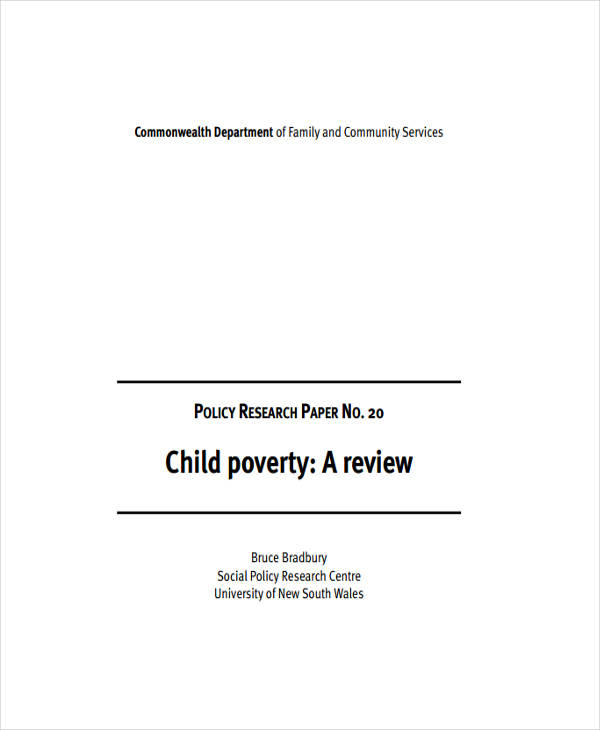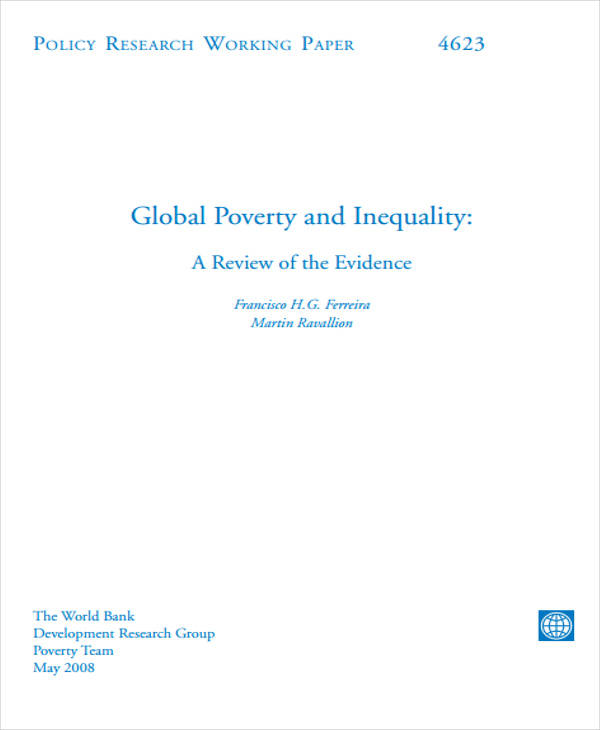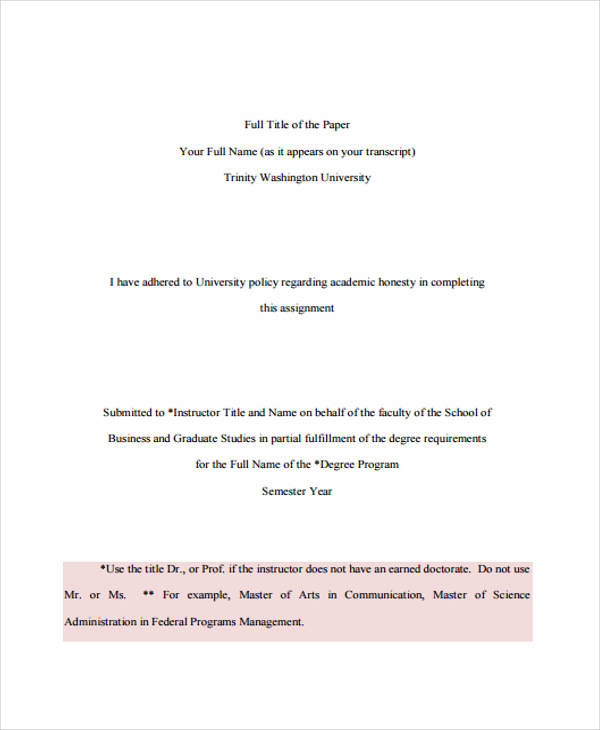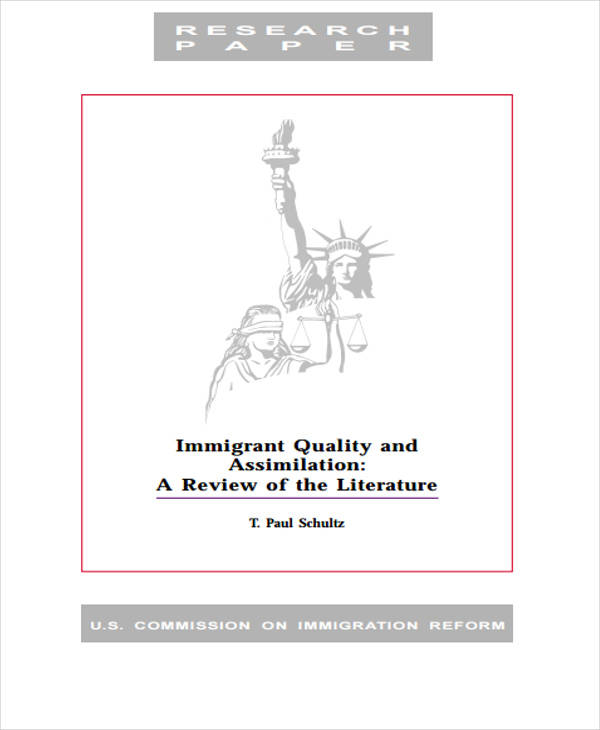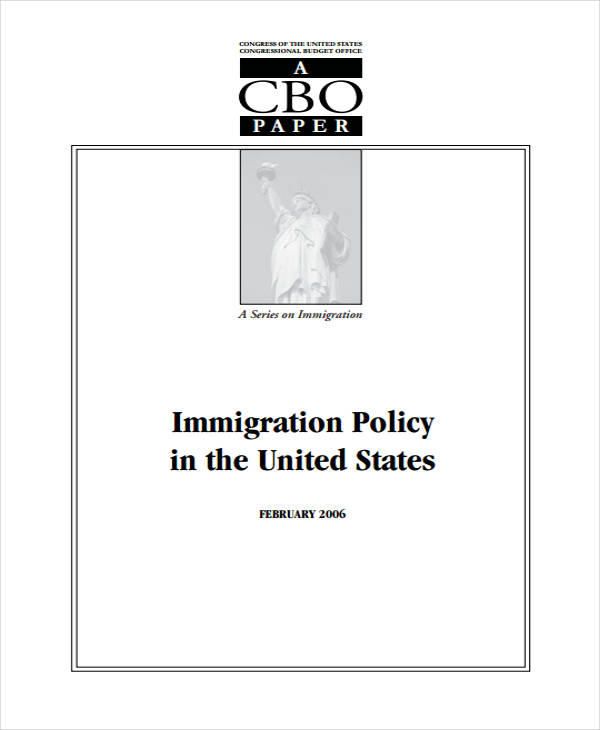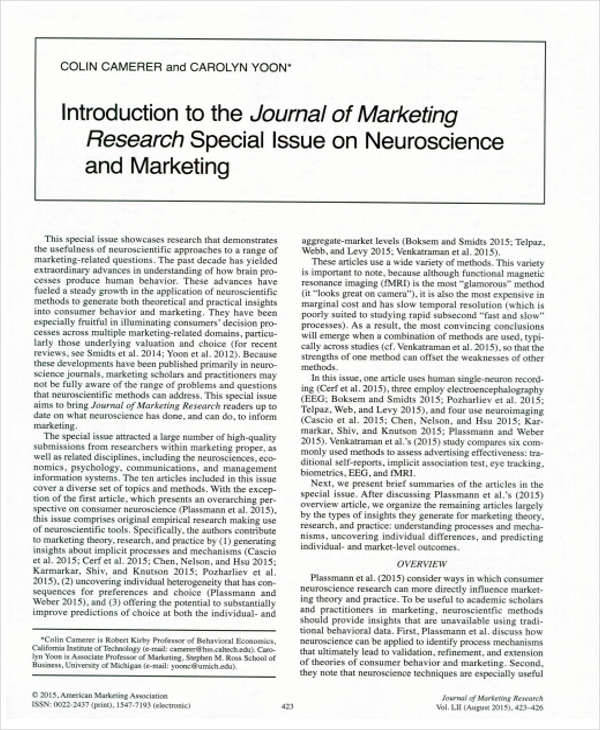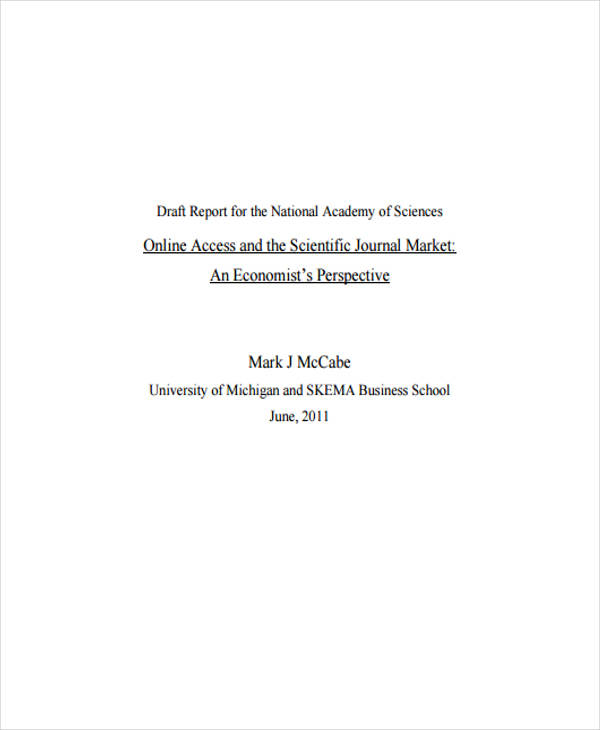A Research Paper is a type of document usually associated with the final requirement or the very sample outline of a college student to be allowed to graduate. It makes or breaks a student’s resolve on taking a certain course. However, a research paper is essential in the way it allows the maker of the paper to gather information and data that they would not have known about in any other circumstances.
Writing a research paper may seem difficult at first, but it is an academic requirement that all students essay go through at one point, and it is for good reasons. As you continue to read through this article, you will be able to define and create your own research paper more easily.
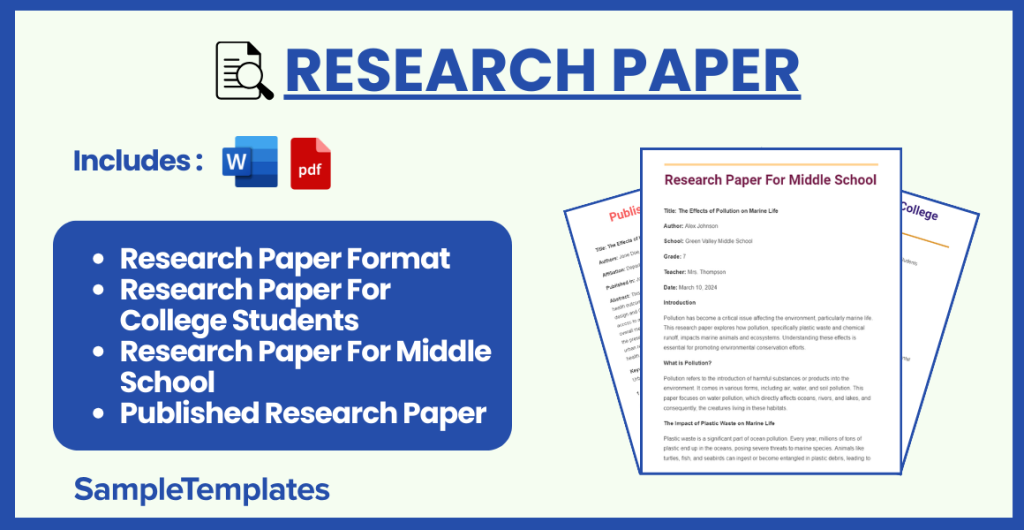
Download Research Paper Bundle
Research Paper Format
Title Page
- Title: Concise and informative, clearly indicating the research topic.
- Author’s Name: Include full names without titles.
- Institutional Affiliation: The name of the school or organization where the research was conducted.
- Course Name: If applicable.
- Instructor’s Name: If applicable.
- Submission Date: The date the paper is submitted.
Abstract
- A brief summary of the research paper, including the purpose of the research, methodology, results, and conclusions. Typically, an abstract should not exceed 250 words.
Table of Contents
- List of sections, including page numbers. This helps readers navigate the document easily.
Introduction
- Introduces the topic, provides background information, and presents the research question or thesis statement. It sets the stage for the entire study.
Literature Review
- A survey of existing research relevant to the topic. This section demonstrates the researcher’s knowledge of the field and how their work fits into the larger academic conversation.
Methodology
- Details the research methods used to gather data. This includes the research design, population/sample, data collection techniques, and data analysis strategies.
Results
- Presents the findings of the study without interpretation. This section includes data in the form of text, tables, and figures.
Discussion
- Interprets the results, explaining how they answer the research question or support the thesis. Discusses the implications of the findings and any limitations of the study.
Conclusion
- Summarizes the main findings and their implications. Suggests areas for future research.
References/Bibliography
- A list of all sources cited in the paper. The format for references varies by citation style (APA, MLA, Chicago, etc.).
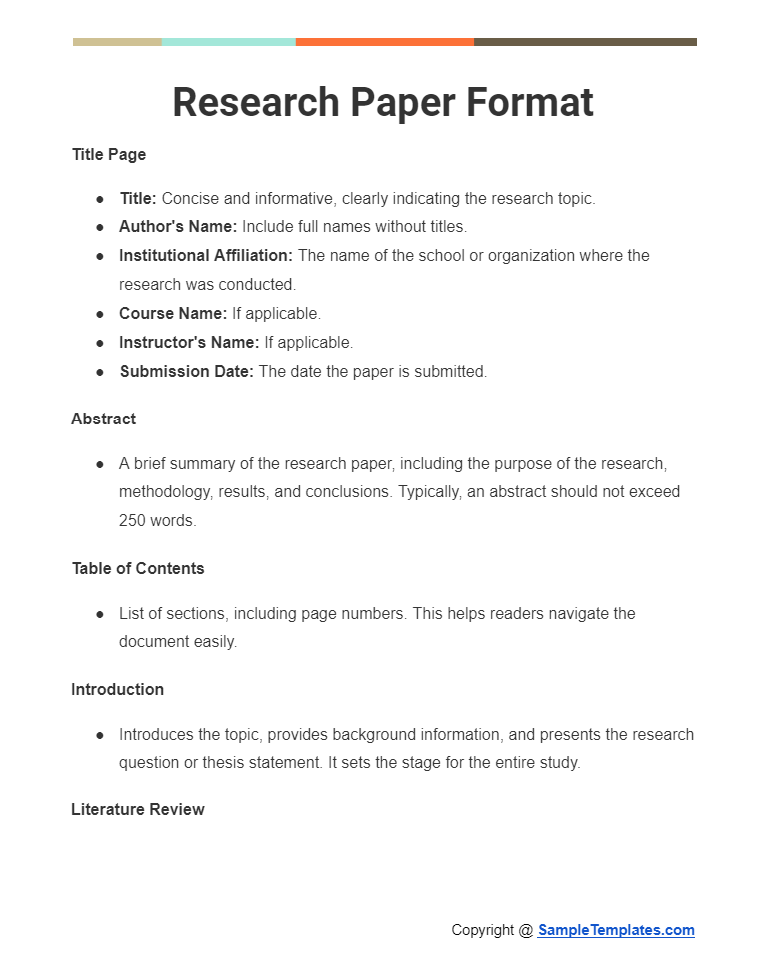
Research Paper For College Students
Title: The Impact of Social Media on Mental Health among College Students
Author: John Doe
Institution: University of Education
Course: Psychology 101
Instructor: Dr. Jane Smith
Submission Date: December 15, 2024
Abstract
This research paper explores the relationship between social media usage and mental health issues among college students. With a sample of 200 students from the University of Education, the study employs a mixed-methods approach, combining surveys and interviews to gather data on social media habits and mental health status. Results indicate a significant correlation between high social media usage and increased levels of anxiety and depression. The findings highlight the need for awareness and strategies to mitigate negative mental health outcomes associated with social media.
Introduction
In the digital age, social media has become an integral part of daily life, especially for college students. While it offers benefits such as connectivity and information sharing, there is growing concern about its impact on mental health. This study aims to investigate the relationship between social media usage and mental health issues, including anxiety and depression, among college students.
Literature Review
A review of existing literature reveals mixed outcomes regarding social media’s impact on mental health. Some studies suggest that social media can enhance social support and well-being (Smith, 2020), while others point to increased risks of anxiety, depression, and loneliness (Johnson & Anderson, 2019). This study builds on the existing research by focusing on the college student population.
Methodology
The study used a mixed-methods design, combining quantitative surveys with qualitative interviews. A random sample of 200 college students was surveyed to assess their social media usage patterns and mental health status, using standardized tools like the Social Media Use Integration Scale and the General Anxiety Disorder-7 questionnaire. In-depth interviews were conducted with 20 participants to gain further insights.
Results
Analysis of the survey data revealed that students spending more than three hours per day on social media were significantly more likely to report symptoms of anxiety and depression. Interview responses highlighted feelings of inadequacy and social comparison as common issues exacerbated by social media use.
Discussion
The findings suggest a strong correlation between extensive social media use and negative mental health outcomes among college students. This relationship may be influenced by factors such as social comparison, cyberbullying, and the disruption of sleep patterns. The study emphasizes the importance of setting boundaries on social media use and suggests further research into coping strategies for affected individuals.
Conclusion
The impact of social media on mental health is a pressing issue among college students. This study’s findings contribute to a deeper understanding of the relationship between social media usage and mental health issues, pointing to the need for targeted interventions and awareness campaigns to promote healthier social media habits among students.
References
Johnson, K. M., & Anderson, H. R. (2019). The Social Dilemma: Social Media and Mental Health. Journal of Digital Media & Mental Health, 8(2), 44-51.
Smith, L. (2020). Connecting the World: The Role of Social Media in Enhancing Social Support and Well-being Among Students. Journal of Social Media Studies, 12(3), 67-82.
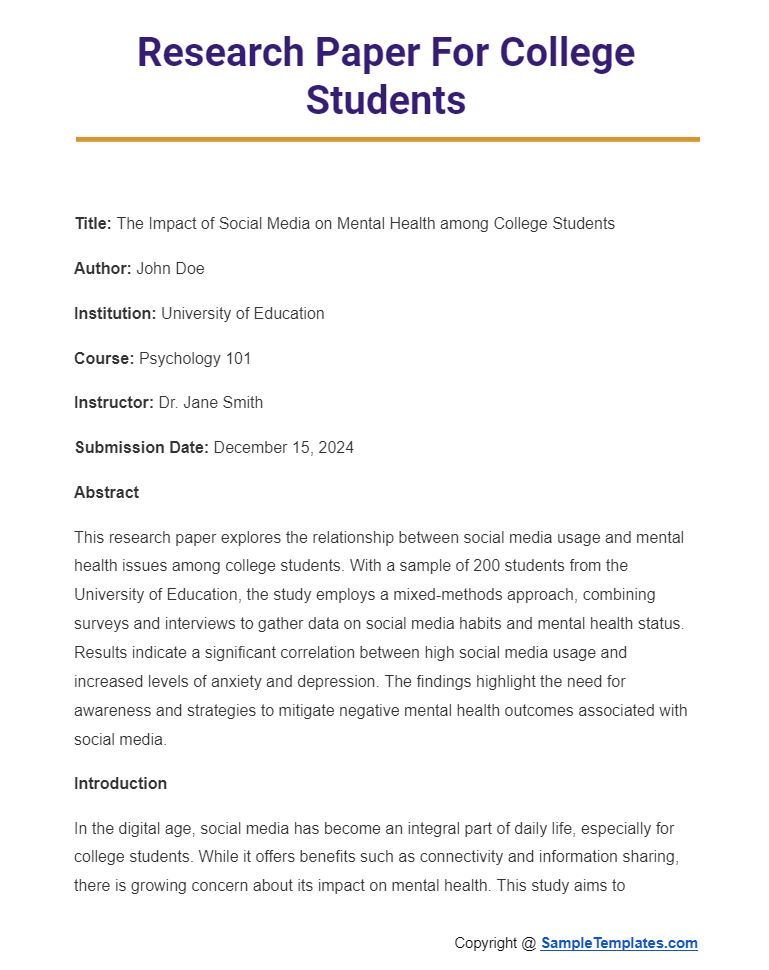
Research Paper For Middle School
Title: The Effects of Pollution on Marine Life
Author: Alex Johnson
School: Green Valley Middle School
Grade: 7
Teacher: Mrs. Thompson
Date: March 10, 2024
Introduction
Pollution has become a critical issue affecting the environment, particularly marine life. This research paper explores how pollution, specifically plastic waste and chemical runoff, impacts marine animals and ecosystems. Understanding these effects is essential for promoting environmental conservation efforts.
What is Pollution?
Pollution refers to the introduction of harmful substances or products into the environment. It comes in various forms, including air, water, and soil pollution. This paper focuses on water pollution, which directly affects oceans, rivers, and lakes, and consequently, the creatures living in these habitats.
The Impact of Plastic Waste on Marine Life
Plastic waste is a significant part of ocean pollution. Every year, millions of tons of plastic end up in the oceans, posing severe threats to marine species. Animals like turtles, fish, and seabirds can ingest or become entangled in plastic debris, leading to injuries, illnesses, and often death. Moreover, plastics break down into microplastics, tiny particles that further contaminate the water and enter the food chain, affecting not only marine life but also humans.
Chemical Runoff and Its Effects
Chemical runoff from agriculture, industries, and urban areas is another source of marine pollution. These chemicals include pesticides, fertilizers, and industrial waste, which can lead to the eutrophication of water bodies. Eutrophication causes excessive algae growth, depleting oxygen in the water and creating “dead zones” where most marine life cannot survive. This disruption severely affects biodiversity and the availability of resources for marine and human communities.
Solutions and Preventive Measures
Addressing marine pollution requires a combination of individual actions, policy changes, and global cooperation. Solutions include:
- Reducing plastic use and improving waste management to prevent plastic pollution.
- Implementing stricter regulations on industrial discharge and agricultural runoff to minimize chemical pollution.
- Promoting awareness and education on the importance of marine conservation.
Conclusion
The pollution of our oceans and waterways has a devastating impact on marine life, affecting their health, habitats, and the overall biodiversity of these ecosystems. By understanding these effects and implementing solutions, we can work towards a healthier and more sustainable environment for marine life and future generations.
References
(Note: References are fictional for this sample)
- Ocean Conservancy. (2023). Impact of Plastic Waste on Marine Life.
- Greenpeace. (2023). Solutions to Ocean Pollution.
- World Wildlife Fund. (2023). Protecting Marine Life from Pollution.
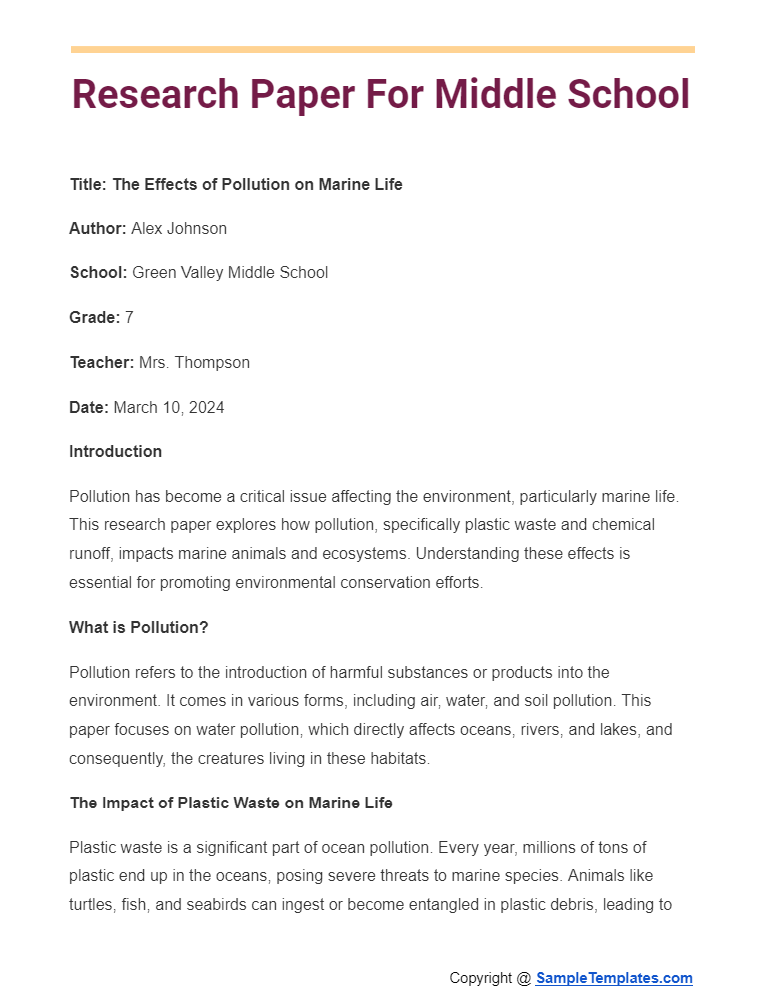
Published Research Paper
Title: The Effects of Urban Green Spaces on Mental Health: A Case Study
Authors: Jane Doe, John Smith
Affiliation: Department of Environmental Sciences, Green University
Published in: Journal of Environmental Psychology, Volume 34, Issue 4, 2024
Abstract: This study explores the relationship between urban green spaces and mental health outcomes among residents in Springfield City. Utilizing a cross-sectional survey design and GIS mapping for green space analysis, the research investigates how access to and the quality of urban green spaces influence stress levels, mood, and overall mental well-being. The findings indicate a significant positive correlation between the presence of accessible, high-quality green spaces and lower stress levels among urban residents, supporting the hypothesis that urban green spaces are vital for mental health.
Keywords: Urban Green Spaces, Mental Health, Stress Reduction, GIS Mapping, Urban Planning
1. Introduction
Urbanization poses increasing challenges to mental health, with urban residents facing higher rates of stress and mental health disorders than rural populations. Urban green spaces (UGS) are increasingly recognized for their mental health benefits. This paper examines the impact of UGS on mental health in Springfield City, hypothesizing that greater access to and quality of these spaces correlates with improved mental health outcomes.
2. Literature Review
The review synthesizes current research on the benefits of UGS, including stress reduction, improved mood, and enhanced psychological well-being. Studies by Green et al. (2020) and Parks (2021) provide foundational insights into the mechanisms through which green spaces exert their positive effects on mental health.
3. Methodology
The study combined a quantitative survey of 500 Springfield residents with GIS analysis to map green space distribution and accessibility. Survey questions assessed participants’ mental health using the General Health Questionnaire (GHQ-12) and their use and perception of local UGS.
4. Results
Data analysis revealed a strong association between frequent use of UGS and lower GHQ-12 scores, indicating better mental health. GIS analysis showed that areas with higher UGS accessibility had residents reporting lower stress levels.
5. Discussion
The results support the hypothesis, aligning with the literature on the positive effects of UGS on mental health. The study also identifies factors such as green space design and maintenance as critical for maximizing mental health benefits.
6. Conclusion
This research underscores the importance of integrating UGS in urban planning to enhance mental health outcomes. Future research should explore longitudinal effects and the role of specific green space features.
References
- Green, A., et al. (2020). Urban Green Spaces and Health: A Review of Evidence. Journal of Environmental Psychology, 66, 101383.
- Parks, B. (2021). Green Space Accessibility and Mental Well-being. Urban Planning International, 29(2), 120-128.
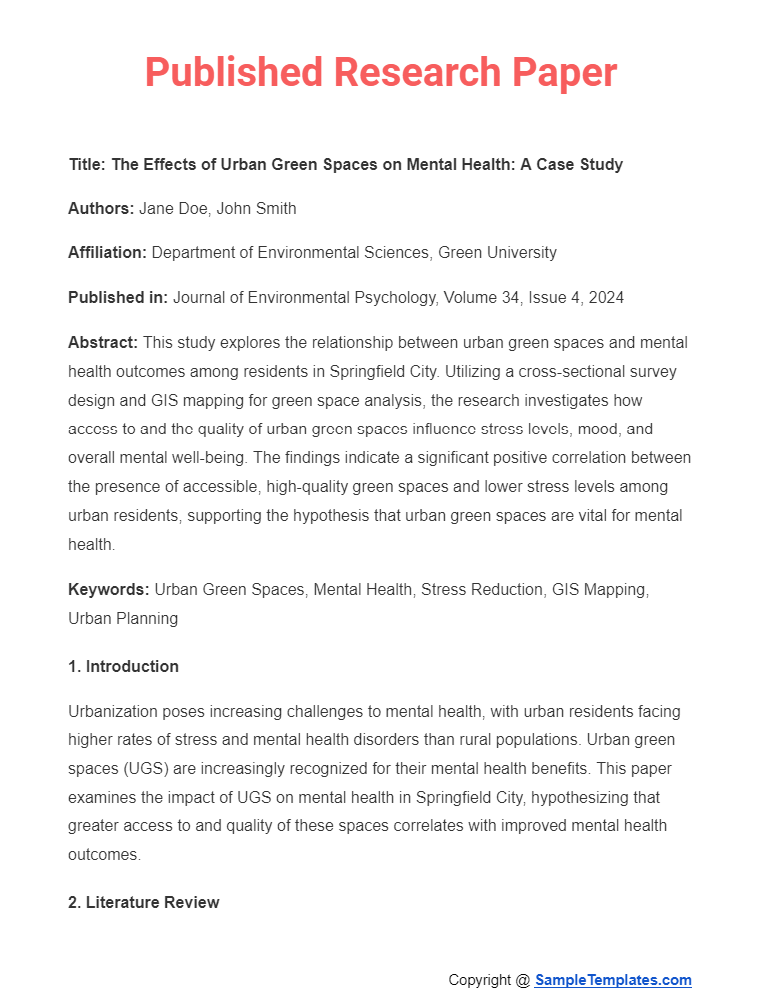
Browse More Templates On Research Paper
Clinical Research White Paper Template
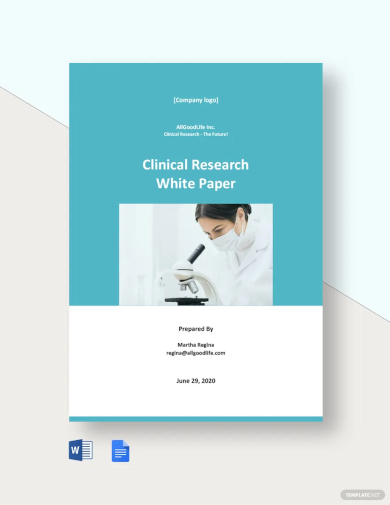
Sample Career Research Paper Essay Template

Essay Outline For Research Paper Template
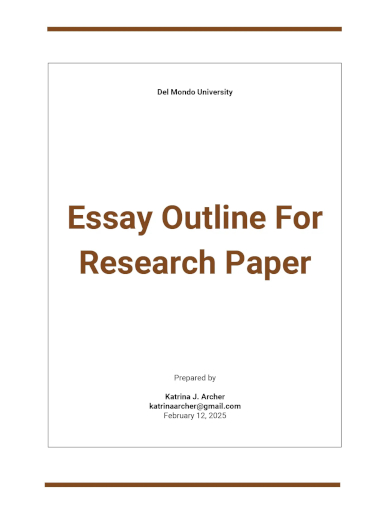
Proposal Essay For Research Paper Template
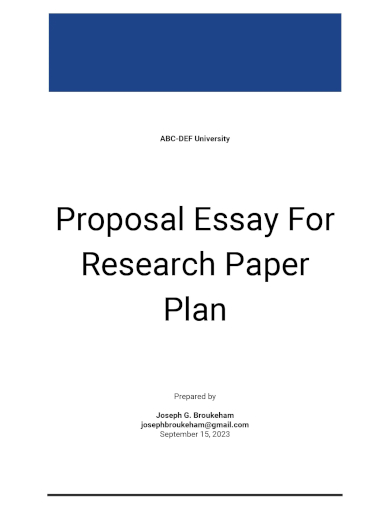
Simple Research White Paper Template
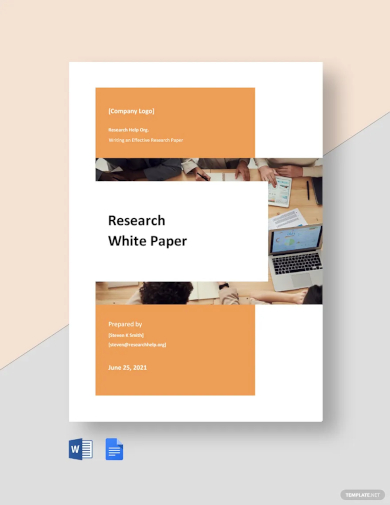
Research Paper Analysis Essay Template
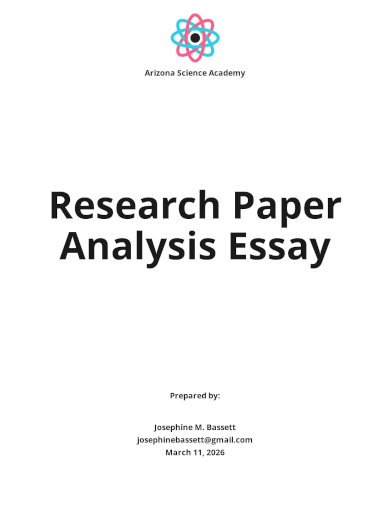
Research Paper APA Format Essay Template
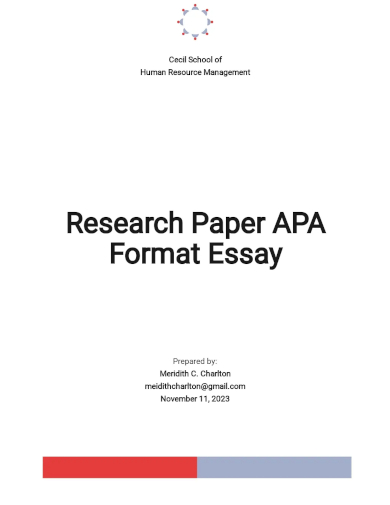
Free Sample Research White Paper Template
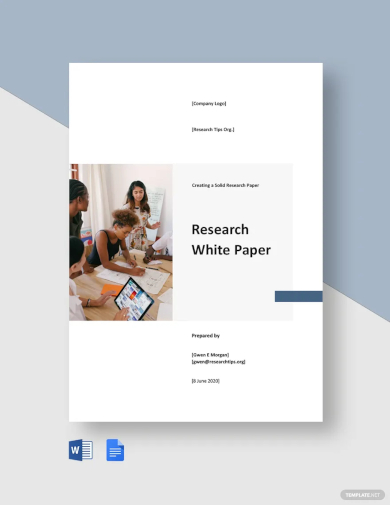
Research Paper Table of Contents Template
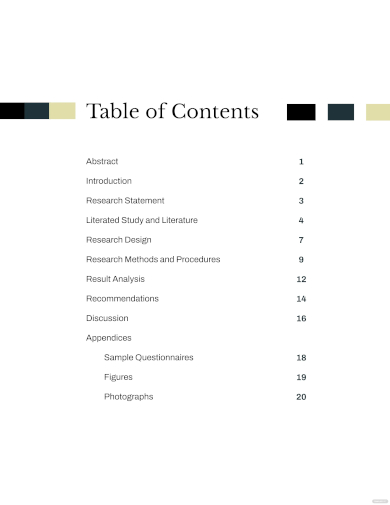
Covid 19 Research Paper Essay Template
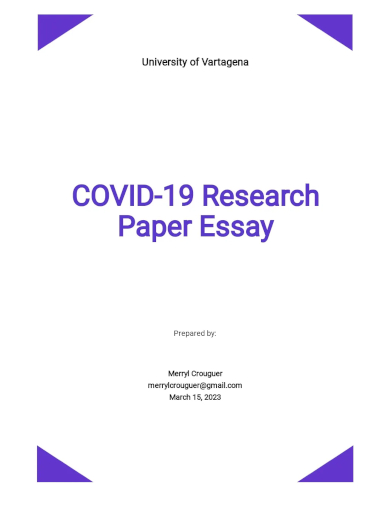
College Research Paper Template
College-Level Paper Model Template
Sample Library Research Papers Template
Library System Research Template
Library Management Systems Template
Parts of Research Paper
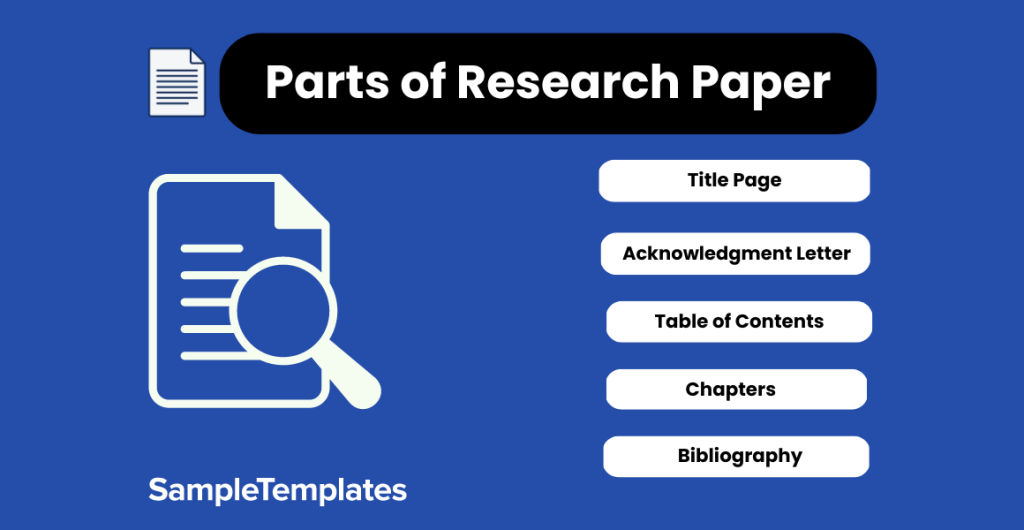
A research paper, like any other document, has a certain format to follow. As you may notice from researching for research paper examples, the format of a research paper sample is always fixed or uniform. As a student we should follow the format accordingly so as to avoid revisions and errors that could be made when not following the proper format of a research paper. Parts of the research paper are as follows:
- Title Page
- Acknowledgment Letter
- Table of Contents
- Chapters
- Bibliography
- Curriculum Vitae
What Is an Outline for a Research Paper?
An outline for a research paper is the blueprint or guide a teacher or a professor would provide to their students so as to allow the students to more easily understand how to create and write their own research paper project. A Research Paper Outline is usually explained in full detail to the students so as to allow them to begin working on it without any problems. To most students, it is a draft of what will be the most time-consuming and academically important project in their entire time being a student of their course.
Academic Research Papers Example
Academic Performance Paper Template
Academic Cheating Research Template
Formal Business Research Papers
Small Business Innovation Management Template
Risk Management Template
Business Ethics Research Template
Analysis Research Papers Template
Data Analysis Paper Template
Regression Analysis Template
Guidelines for Writing a Research Paper
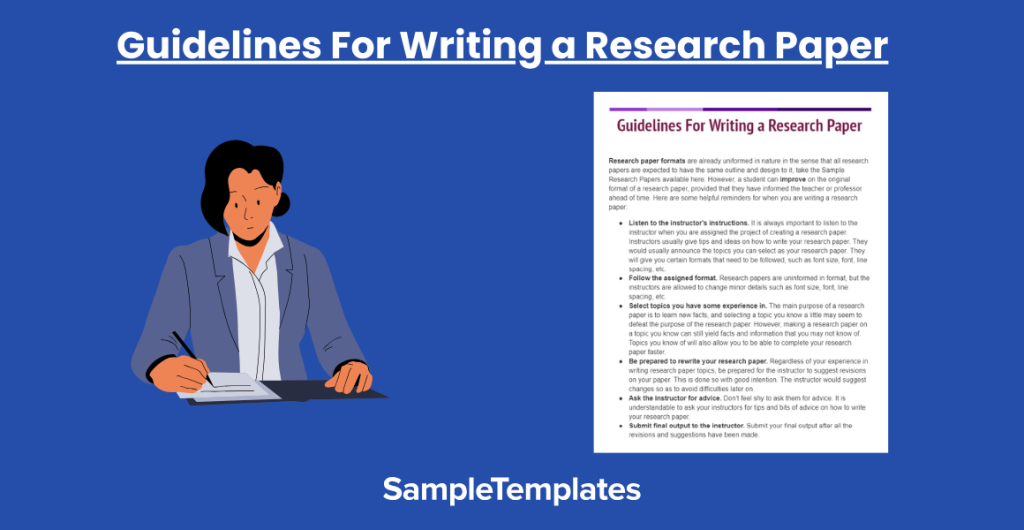
Research paper formats are already uniformed in nature in the sense that all research papers are expected to have the same outline and design to it, take the Sample Research Papers available here. However, a student can improve on the original format of a research paper, provided that they have informed the teacher or professor ahead of time. Here are some helpful reminders for when you are writing a research paper:
- Listen to the instructor’s instructions. It is always important to listen to the instructor when you are assigned the project of creating a research paper. Instructors usually give tips and ideas on how to write your research paper. They would usually announce the topics you can select as your research paper. They will give you certain formats that need to be followed, such as font size, font, line spacing, etc.
- Follow the assigned format. Research papers are uninformed in format, but the instructors are allowed to change minor details such as font size, font, line spacing, etc.
- Select topics you have some experience in. The main purpose of a research paper is to learn new facts, and selecting a topic you know a little may seem to defeat the purpose of the research paper. However, making a research paper on a topic you know can still yield facts and information that you may not know of. Topics you know of will also allow you to be able to complete your research paper faster.
- Be prepared to rewrite your research paper. Regardless of your experience in writing research paper topics, be prepared for the instructor to suggest revisions on your paper. This is done so with good intention. The instructor would suggest changes so as to avoid difficulties later on.
- Ask the instructor for advice. Don’t feel shy to ask them for advice. It is understandable to ask your instructors for tips and bits of advice on how to write your research paper.
- Submit final output to the instructor. Submit your final output after all the revisions and suggestions have been made.
Environmental Research Papers Outline
Environmental Awareness and Practices Template
Environmental Pollution Template
Sample Graduate Research Papers Template
Graduate School Paper Template
Graduate-Level Research Template
Interview Research Papers Template
Job Interview Research Template
Cultural Interview Paper Template
Basic Marketing Research Papers
Online Marketing Template
Marketing Strategies Template
Marketing Plan Research Template
Marketing Management Template
How to Format a Research Paper
The format of a research paper are quite fixed, with the only changes a professional instructor could make would be the font, font size, and other minor changes that would not affect the research paper as a whole.
However, some instructors may say to make it into a research paper PDF. This simply means that you need to convert your research paper into PDF format so as to avoid others copying your work.
How to Write a Thesis Statement for a Research Paper
Now, a thesis statement is directly relatable to the statement of the problem, in the sense that they are both the main reason for conducting the research paper. It can be said that a thesis statement is the “why” factor of your paper. In order to write a thesis statement, you would need to do a few things first:
- Select a topic. Selecting a topic is always the first thing you should do when making a research paper. It allows you to partially plan out what you will do (a sort of “planner” phase of a research paper).
- Identify any issues.
- Identify any and all issues regarding the topic.
- Select the most interesting issue about the topic.
- Interview representatives from the topic.
- Approach your instructor and begin your Research Paper Proposal.
Medical Research Papers Format
Medical Assistant Template
Analysis of Medical Image Processing Template
Nursing Research Papers Template
Nursing Career Template
Nursing Informatics Research Template
Printable Poverty Research Papers
Child Poverty Paper Template
Global Poverty and Inequality Template
Quantitative Research Paper Template
Quantitative Analysis Template
Sample Immigration Research Papers
Immigration Reform Template
Immigration Policy Template
Journal Research Papers Template
Journal of Marketing Template
Online Access and Scientific Journal Research Template
How to Write a Conclusion for a Research Paper
How you write your conclusion for your research paper will depend directly on what your topics are all about. In this research paper guide on how to write the conclusion, we will list down the factors you will need when writing. These factors are:
- The topic. The topic is directly important because the conclusion will serve as the answer to the business statement of the problem.
- Data gathered and analysis. The data gathered should be relevant to the topic’s statement of the problem. Data should be analyzed thoroughly to ensure that it is indeed relevant to the statement of the problem.
How long is a research paper?
A research paper typically ranges from 6,000 to 12,000 words, although lengths may vary depending on academic discipline, journal requirements, or specific project guidelines
Is it possible to finish a research paper in 2 days?
Completing a research paper in two days is possible but challenging. It requires efficient time management, focused dedication, and a clear understanding of the topic, research methods, and writing process.
Can I write a research paper on my own?
Yes, you can write a research paper independently by conducting literature review, data collection, analysis, and writing. However, guidance from mentors or collaborators may enhance quality and understanding.
Can a normal person publish a research paper?
Yes, a normal person can publish a research paper if they conduct original research, follow proper academic standards, and submit their work to appropriate journals or platforms for peer review and publication.
How many pages does a research paper have?
The length of a research paper varies depending on factors such as discipline, complexity, and specific requirements, but it typically ranges from a few pages to dozens or even hundreds.
In conclusion, the research paper format provides a comprehensive examination of the chosen topic, presenting original findings, analysis, and insights. Through rigorous investigation and critical thinking, it contributes to the body of knowledge in the field, stimulates further inquiry, and guides future research and decision-making processes.
Related Posts
Sample Business Card Templates
Sample Cashier Job Descriptions
Questionnaire Samples
FREE 10+ Sample HR Resource Templates in PDF
FREE 10+ HR Consulting Business Plan Samples in MS Word | Google Docs | Pages | PDF
FREE 49+ Sample Job Descriptions in PDF | MS Word
FREE 16+ Nonprofit Budget Samples in PDF | MS Word | Excel | Google Docs | Google Sheets | Numbers | Pages
FREE 13+ Academic Calendar Templates in Google Docs | MS Word | Pages | PDF
FREE 10+ How to Create an Executive Summary Samples in Google Docs | MS Word | Pages | PDF
FREE 23+ Sample Event Calendar Templates in PDF | MS Word | Google Docs | Apple Pages
Company Profile Samples
FREE 10+ Leadership Report Samples [ Development, Training, Camp ]
FREE 24+ Sample Payment Schedules in PDF | MS Word
FREE 10+ Return to Work Action Plan Samples in PDF | DOC
Autobiography Samples & Templates
